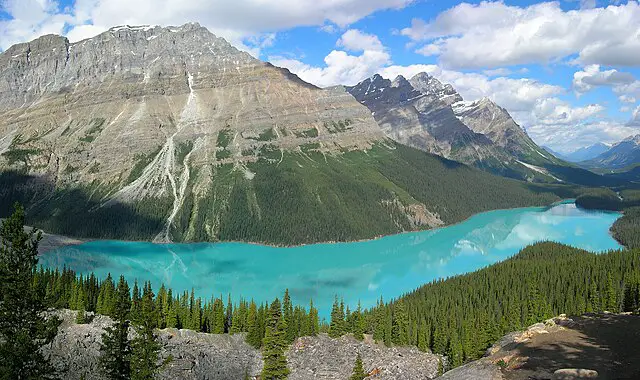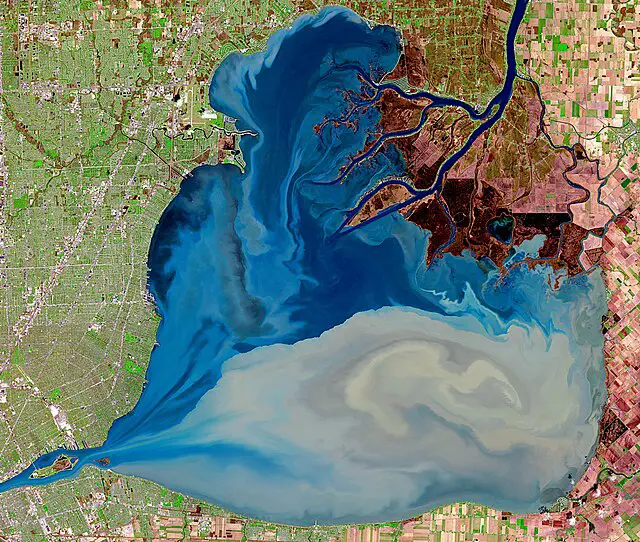Picture a map of the world’s lakes. Now imagine more than half of them squeezed into one country. It sounds impossible, yet that’s the reality of Canada—where lakes are so common, you could visit a new one every day for a lifetime and barely make a dent. Canada isn’t just a land of mountains and maple syrup; it’s a water giant, home to 60% of the world’s lakes.
While most countries boast a handful of famous lakes, Canada’s landscape is speckled with over two million. These lakes cover nearly 9% of the country’s total land area, a mind-boggling figure that raises an intriguing question: why Canada? And more importantly, what does it mean for the rest of the planet?
The Science Behind Canada’s Lake Abundance
The secret to Canada’s watery wealth lies in ancient geology and climate history. During the last Ice Age, much of Canada was buried beneath glaciers miles thick. As these colossal ice sheets moved, they scoured the land, carving deep basins into the terrain. When the ice finally melted thousands of years ago, these basins filled with water, forming the countless lakes that now dot the country.
But the lakes didn’t just form—they stayed. Canada’s cooler climate reduces evaporation, meaning lakes retain their water longer than in warmer regions. Heavy precipitation and a vast, untouched wilderness also contribute to their longevity, making Canada a permanent reservoir for freshwater.

Canada’s Most Spectacular Lakes
Not all lakes are created equal, and Canada is home to some of the world’s most breathtaking and ecologically significant bodies of water. Great Bear Lake, located in the Northwest Territories, is the largest lake entirely within Canada, spanning an area larger than Belgium. Meanwhile, Lake Superior, shared with the U.S., is the largest freshwater lake by surface area on the planet.
For those drawn to pure beauty, Moraine Lake in Alberta offers a stunning turquoise hue that seems almost unreal, while Lake Louise remains one of the country’s most photographed locations. Beyond their visual appeal, many of these lakes are steeped in Indigenous history, folklore, and even hidden shipwrecks waiting to be explored.
Why Canada’s Lakes Matter to the World
These lakes aren’t just picturesque—they are critical to global ecosystems. Together, they hold an enormous portion of the world’s fresh water, acting as lifelines for biodiversity, climate regulation, and human survival. They provide habitats for countless species of fish, birds, and wildlife while serving as natural carbon sinks that help regulate the planet’s temperature.
Beyond their ecological importance, Canada’s lakes fuel industries that millions rely on. The fishing, tourism, and hydroelectric sectors depend heavily on them, and many lakes provide drinking water for entire cities. As global freshwater resources dwindle, Canada’s role as a water-rich nation becomes even more significant.
The Threats Facing Canada’s Lakes
Despite their abundance, these lakes are far from invincible. Climate change, pollution, and industrial activities are taking a toll on these ecosystems. Rising temperatures have led to more frequent algal blooms, which disrupt marine life and lower water quality. Meanwhile, pollutants from cities and industries seep into the waters, causing long-term damage.
Efforts to protect these freshwater treasures are gaining momentum. Conservation initiatives, Indigenous stewardship, and stricter environmental policies are helping to ensure that Canada’s lakes remain clean and thriving for future generations. Sustainable tourism and responsible resource management are also key to preserving these invaluable bodies of water.
The Big Picture: Canada’s Lakes Are More Than Just a Statistic
Numbers alone can’t capture the sheer magnitude of Canada’s lakes. They are more than a collection of water bodies—they are part of Canada’s identity, a key to the planet’s survival, and a natural wonder worth protecting.
So, the next time you see a breathtaking photo of a Canadian lake, remember—it’s just one of millions. Together, they form the largest network of freshwater ecosystems on Earth, a true hidden superpower that deserves our attention.

